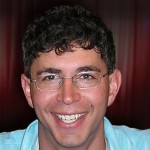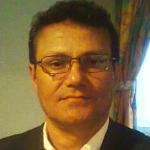“For me, it is fundamental that we—indigenous communities—win the right to govern ourselves.”
Carlos Mamani is a Bolivian professor, researcher, and campaigner for the rights of indigenous communities. Being an Aymara Indian, he is of indigenous origin himself and has first-hand experience of indigenous culture and of the discrimination faced by his people. He became known during the 1990s for his work promoting the ayllu system of governance in Bolivia, an indigenous land-management method which existed in the pre-Inca era. For this, he was elected to the Ashoka Fellowship, a worldwide network of social entrepreneurs dedicated to changing the world. Since then, Carlos has continued to work tirelessly to discover and disseminate knowledge about indigenous cultures and is regarded as a world expert on the topic.
He spoke to Development Roast about his work and his lifetime passion for bringing recognition and equality to the indigenous populations of the world.
What is the ayllu system and why did you want to promote it?
It’s an organizational model belonging to the indigenous settlements in the region of the Andes and South America that was in existence before the time of the Incas. The system is designed according to the characteristics of our land: our environment is very challenging, especially the Altiplano [high planes] region which is 3,800 to 4,000 meters above sea level. We have to see how we can successfully face the challenges which go with this landscape. For example, there is only one harvest period per year and we have very few crops – only potatoes and quinoa – and only one type of animal – the llama. So it’s important that we have control over, and understand, the ecosystem. The organization is based on relationships between human beings, especially the lending of services, and mutual help. This idea has been fundamental for us [indigenous people] to survive the process of colonization since the 16th century.
In the 1990s, we had the idea of recovering the ayllu system. At the time, Bolivia, like the majority of the other countries in Latin America, had adopted the process of acculturation [forcing people to adopt a new culture] so that the indigenous settlements would forget their identities, their languages, and their customs, in favor of a single state organization and culture. When we started this work, we set goals of recovering and strengthening awareness of the indigenous identity, building the self-confidence of indigenous people, and preserving the land in a ‘natural’ state. We conducted a study about the state of indigenous communities, and we published several books on the topic. We also made some radio programs which were aired in Aymara and Quechua, and some in Spanish. As well as doing research, I also wanted to disseminate our findings at the international level.
What was it like growing up as an indigenous child?
Until I was 10 years old I didn’t speak Spanish (my native language is Aymara) but I learned at school. When an indigenous person first encounters the western culture and has to use the Spanish language, it’s very difficult because the languages have very distinct rules and concepts. Economically, our family didn’t have many problems because my family were comfortably-off and had a large farm, so my father could pay for my schooling. We indigenous people aren’t all that poor – our problem is not economic but that we are excluded, socially.
My family are Pacajes [one of the ethnic groups that make up the Aymara people], the people who formed the largest population in South America in ancient times. We, and the other Aymara people, originally had territory that spread from the Amazon to the Pacific coast. But, by the time I started school the Aymara territory had already been reduced to a single province of 10,000 square meters.
What have been the best and the most challenging moments of your career?
One of them must be obtaining a Masters degree in Andean History from the Latin American Faculty of Social Sciences (FLASCO) in Ecuador. After that I started working as a professor at the Universidad Mayor de San Andrés, teaching history to anthropology students. Becoming an academic in a university was a very big achievement for me.
Then, between 2008 and 2010 I was a member of the United Nations Permanent Forum on Indigenous Issues. During the last year, whilst I was resident at the organization [the UN headquarters], I visited many indigenous communities all over the world, and had to interact with government officials and specialist state bodies. I still have a very active international life – I’m always attending conferences on global issues such as climate change, as well as those specializing in indigenous topics. For example, I’ll be going to Norway over the summer for a conference that is being held in preparation for the World Conference on Indigenous Peoples that will take place in New York in 2014.
For me, being a political activist is also very important, not only for the indigenous settlements in my own country, but for those all around the world. I find this very satisfying.
Is there anyone in particular who has inspired you?
I think of myself as very privileged because my father, who is no longer with us, taught me everything about my identity. But what motivates me most isn’t a person, but a personal desire that all indigenous communities in the world can continue to exist. These communities are a sector whose rights have been neglected by the world for some time. Enabling them to survive is my biggest motivation and all my attention and effort has been directed towards this.
What do you wish for in the future, for your career but also for the country?
I haven’t done any research for a few years and I’ve just started again. In September, we’re going to hold a symposium in Geneva on the historical memory of indigenous populations. This is a very important step for me, because I’m not young anymore and I have to think about summarizing the advances we’ve made as well as the difficulties that still exist.
In the long-term, what I want is for all indigenous communities to be entitled to their own responsibilities, for example so that they have the right to educate their own children. For me, it is fundamental that we indigenous communities win the right to govern ourselves, not just here in Bolivia, but also in Canada, Australia, the north of Europe – wherever there are indigenous people.
Do you know of any other people who have fought for the rights of indigenous communities? Please leave a reply below.
Tracey Li is a Senior Research and Communications Intern with INESAD.
For your reference:
More information about Carlos’ work can be found in the following:
Ashoka Fellows <https://www.ashoka.org/fellow/carlos-mamani>.
Mamani, C 1994, ‘History and prehistory in Bolivia: what about the Indians?’, in R. Layton (Ed.), Conflict in the Archaeology of Living Traditions, Routledge, London, UK (pp. 46-60). Available online from <http://goo.gl/FsGgt>.
Mamani, C. 1997, ‘Memoria y Reconstitución’, in: Intelecutales indígenas piensan América Latina, Zapata, Claudia, Universidad Andina Simón Bolívar.
Choque, M. E. & Mamani, C. 2001, ‘Reconstitución del ayllu y derechos de los pueblos indígenas: el movimiento indio en los Andes de Bolivia’, Journal of Latin American Anthropology, Vol. 6, Issue 1, pp. 202-224.
Carlos Mamani Condori, El Proceso de Reconstitución Política Territorial en la coyuntura de la Asamblea Constituyente, katari.org. <http://www.katari.org/proceso.pdf>
 Development Roast Giving international development a proper roasting
Development Roast Giving international development a proper roasting

 Social movements generate a lot of excitement. Many people see them as the most legitimate way of enacting change in society, as they are “from below”, from the people themselves, more ‘inclusive’ and ‘democratic’. Movements that have come around since the 1960s differ from older styles of public pressure where the voice of the poor and the oppressed was expressed through leaders in trade unions or political parties. Examples of the “New Social Movements” in contemporary Latin America include the indigenous movement
Social movements generate a lot of excitement. Many people see them as the most legitimate way of enacting change in society, as they are “from below”, from the people themselves, more ‘inclusive’ and ‘democratic’. Movements that have come around since the 1960s differ from older styles of public pressure where the voice of the poor and the oppressed was expressed through leaders in trade unions or political parties. Examples of the “New Social Movements” in contemporary Latin America include the indigenous movement 
 Today,
Today,  By Tracey Li and Natalia Zegarra
By Tracey Li and Natalia Zegarra Climate change is having an enormous impact in the Andean region, one of the most conspicuous results being glacial melt. Ministers of the affected countries need to draw up policies in order to deal with the environmental, social, and economic consequences, which means that they first need to fully understand exactly what the consequences will be. There are many groups who have investigated the impacts of climate change and produced numerous studies on the subject, but evaluating these studies is not always straightforward. A recent training course—requested by the
Climate change is having an enormous impact in the Andean region, one of the most conspicuous results being glacial melt. Ministers of the affected countries need to draw up policies in order to deal with the environmental, social, and economic consequences, which means that they first need to fully understand exactly what the consequences will be. There are many groups who have investigated the impacts of climate change and produced numerous studies on the subject, but evaluating these studies is not always straightforward. A recent training course—requested by the  Drs. Lykke Andersen, Luís Carlos Jemio, Oscar Molino, and Gonzalo Lora from the
Drs. Lykke Andersen, Luís Carlos Jemio, Oscar Molino, and Gonzalo Lora from the 
 By Tracey Li and Natalia Zegarra.
By Tracey Li and Natalia Zegarra.
